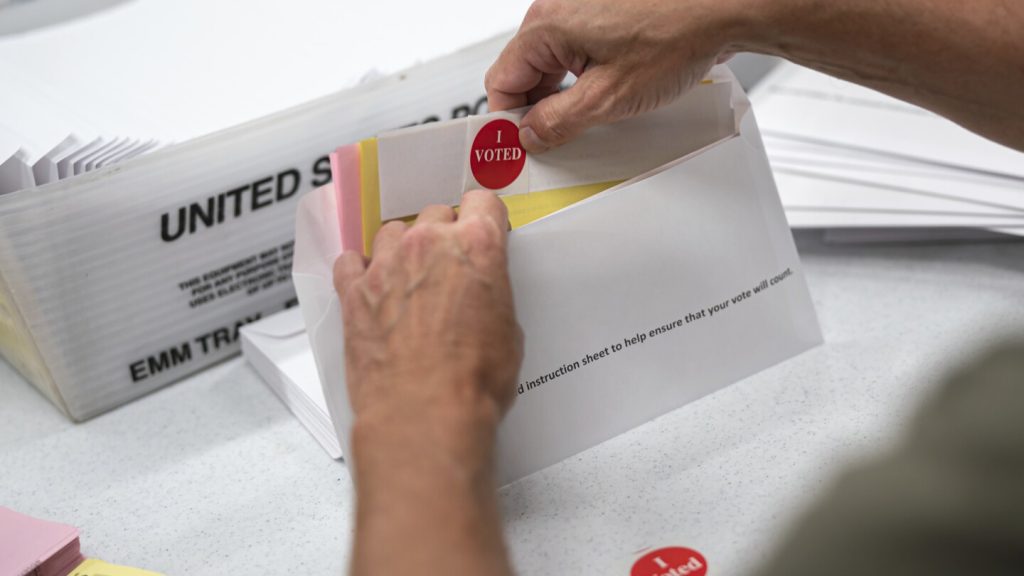A northern Minnesota woman has been charged with three felonies for attempting to submit a mail ballot for her deceased mother. The incident was caught due to the state providing a monthly list of deceased individuals to election officials, who then flag those names in the voter registration database. The woman had returned ballots for herself and her mother in early October, but it was quickly verified that her mother had passed away almost three weeks before the ballots were mailed out. This case highlights how election safeguards can detect and prevent attempted voter fraud, even in rural counties like Itasca County, which has about 45,000 residents.
The woman, described as an “ardent” supporter of former President Donald Trump, admitted in an interview with a sheriff’s lieutenant that she filled out her mother’s ballot after her death. It was reported that she was eager to vote for Trump before her mother’s passing. Itasca County Attorney Jake Fauchald emphasized that election officials have the necessary resources to catch fraudulent ballots and are committed to prosecuting cases of election fraud. The woman is facing charges of illegal voting and forging signatures on ballot envelopes, with each charge carrying a maximum penalty of five years in prison and a fine of up to $10,000. Her first court appearance is scheduled for December 4.
Despite the attention on voter fraud in the context of Trump’s claims of a rigged election, there is no evidence of significant voter fraud in the 2020 election. An investigation by the Associated Press found fewer than 475 potential cases of voter fraud out of millions of votes cast, not enough to impact the election outcome. In Minnesota, Itasca County Auditor Austin Rohling stated that although he has not seen any nefarious cases of ballots being cast for deceased individuals during his tenure, occasionally individuals may fill out a ballot and pass away before Election Day, in which case the ballot is not counted under state law.
The incident in Itasca County reflects a larger issue of varying laws across states regarding the counting of ballots cast by those who subsequently die before the election. Sixteen states prohibit counting such ballots, while 10 states explicitly allow it. The law remains silent on this issue in the rest of the country. Despite occasional minor incidents in elections, Rohling reassured that intentional fraud is rare and that the system is functioning as intended. The woman involved in this case will have her day in court, but this situation serves as a reminder of the importance of election safeguards in preserving the integrity of the voting process.


